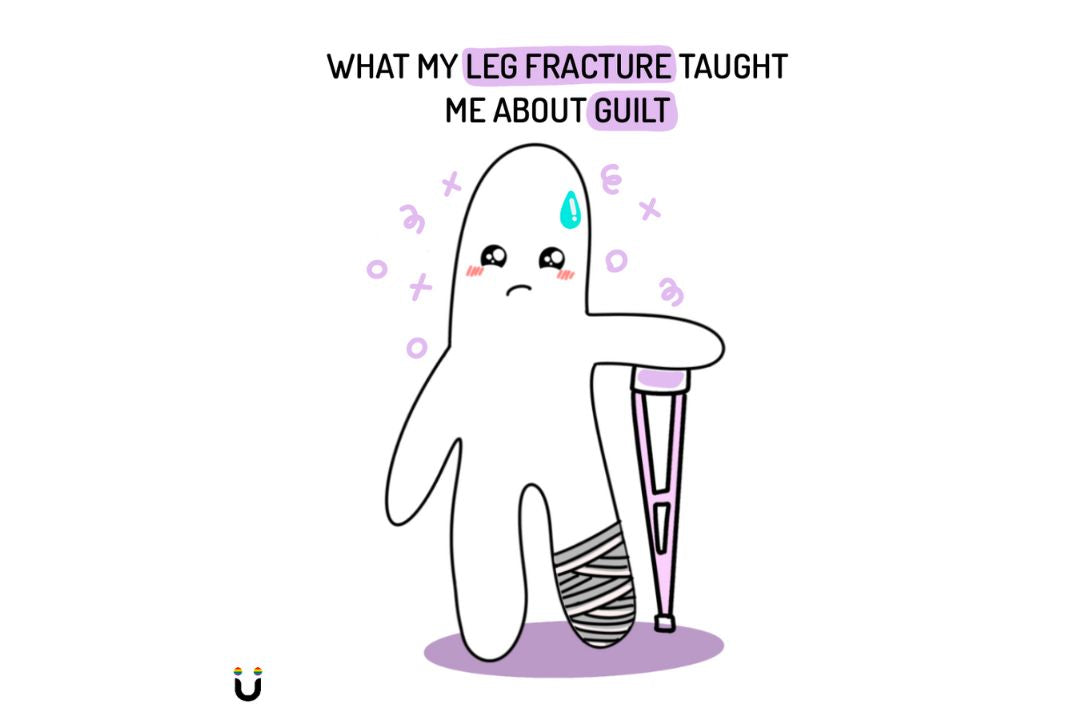At the very end of last year, I fractured my leg and had to be on bedrest for a couple of weeks. It was awful not being able to do the simplest things and missing out on almost everything I had been looking forward to over the past few months. It constantly felt like I was enveloped in a fog of gloomy thoughts and feelings that I couldn’t do anything about.
In a nutshell, I felt helpless.
With feeling helpless all the time, came a whirlwind of other feelings - feelings of guilt, embarrassment, sadness, anxiety, loss and other such sensations that I cannot put words to.
What I especially noticed (and struggled with) is the sense of all-encompassing guilt and helplessness. The guilt of repeatedly getting injured and being on the receiving end of care. Every time I get injured and need help, I feel like I'm letting everyone else down. Yes, the irony is not lost on me, because my job involves making people feel cared for. I understand that although I keep talking about how asking for help is courageous, it's really hard to do and cope with the feeling of guilt and helplessness that sometimes follows the question.
Guilt is an emotion we feel when we have failed to match up to our expectations, values and standards. Mine, in this case, was not wanting to inconvenience my loved ones. But, in the end, I didn’t let that get me down and eventually found a few ways to power through. If you’re looking for the same answers, this is what helped me get through the fog of guilt (and other such emotions that generally do not feel good):
Feeling Useful: Well, ideally we should all feel worthy and useful for just being and not necessary for doing something, but that’s easier said than done. What helped me was feeling applied at work and contributing at home by performing small tasks that I could do from my bed.
Having things in Control: Yes, I know that getting injured wasn’t in my control but making a plan of what I was going to do to take care of myself (and how I was going to get stronger) helped refocus my attention to what I could do instead of spiralling with helplessness.
Meaningful breaks from reality: Reading books and watching TV - not mindlessly, but engaging with them meaningfully - helped transport me to places and kept my mind active and entertained when I physically couldn’t move.
Sustaining my connections: I isolated myself for a while out of the embarrassment of getting injured again but that didn’t help at all; in fact, it only made me feel even more lonely. Truth be told, I really didn’t want to keep explaining how it happened or why it happened. Connecting with my support system of people who listened instead of advising, (but more importantly, people who showed concern without overwhelming me) helped me to not only feel less alone but also did away with the ensuing embarrassment.
What I realise now, many months later, is that the feeling of guilt was not all that bad. I say this with discomfort, but there was an element of guilt that was helpful too. The discomfort of guilt drove me to really take a look at how my body was doing and to act in a way that would nurture it. It created accountability and change.
And for that, I’ll always be grateful.


